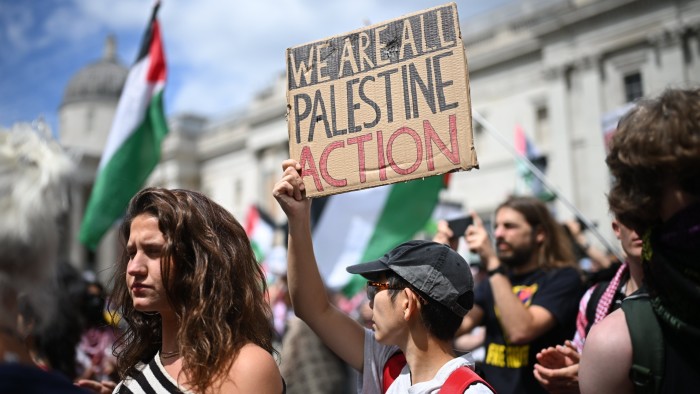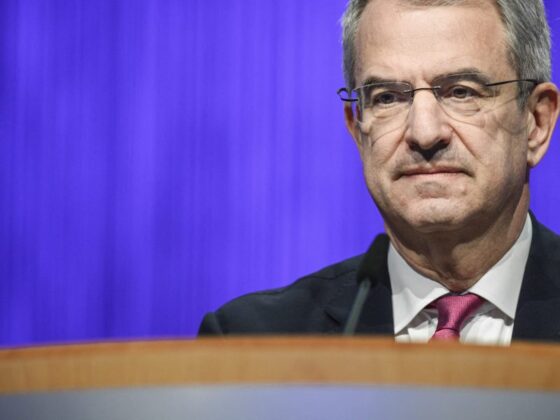Unlock the Editor’s Digest for free
Roula Khalaf, Editor of the FT, selects her favourite stories in this weekly newsletter.
Home secretary Yvette Cooper has mounted a fresh defence of the UK government’s decision to ban Palestine Action, as more people prepare to appear in court charged with supporting the proscribed terrorist group.
In her strongest comments yet on the proscription, which took effect last month, Cooper on Sunday said the pro-Palestinian group had carried out an “escalating campaign” of criminal damage, including to “Britain’s national security infrastructure”, as well as intimidation and violence.
“The clear advice and intelligence given to me earlier this year from the UK’s world-leading counterterrorism system . . . was that Palestine Action satisfies the relevant tests in the Terrorism Act 2000,” Cooper wrote in an article for The Observer.
Her intervention comes as ministers are under growing pressure to review their decision to proscribe the group, after more than 500 of its supporters were arrested at a largely peaceful mass protest in London last weekend. Almost half of those arrested were over the age of 60.
The Metropolitan Police on Friday said 60 more people would be prosecuted for showing support for Palestine Action, with the Crown Prosecution Service indicating that it was working with counterterror police and the government to accelerate processing of cases.
Parliament approved the proscription of Palestine Action after members broke into RAF Brize Norton — the UK’s largest air base — in June and damaged military aircraft.
The ban — which puts it alongside groups including al-Qaeda and Islamic State, as well as several neo-Nazi groups — makes it a criminal offence punishable by up to 14 years in prison to belong to, or support, Palestine Action.
The group has officially disbanded but is appealing against the decision, after a High Court ruling on July 30.
Cooper said the proscription did not prevent protests “against the catastrophic humanitarian situation and crimes against humanity in Gaza”, adding that “only a tiny minority” of pro-Palestinian demonstrators had been arrested “for breaking the law”.
But the Liberal Democrats have called the Palestine Action arrests “disproportionate” and urged Jonathan Hall KC, the independent reviewer of terrorism legislation, to conduct an urgent review into how the Terrorism Act is being applied.
Tim Crosland, spokesperson for Defend Our Juries, which organised the London mass protest in support of Palestine Action earlier this month, said Cooper was “actively misleading the public regarding the basis for the proscription of Palestine Action” and accused her of contempt of court.
“We will be writing to the attorney-general to draw the matter to his attention,” he added.
Cooper said some information about Palestine Action’s activities could not be put into the public domain owing to live legal proceedings, but that she had received “disturbing information” ahead of the decision to ban the group that “covered ideas and planning for future attacks”.
“For a home secretary to ignore all those security assessments, advice and recommendations would be irresponsible,” Cooper said. “Were there to be further serious attacks or injuries, the government would rightly be condemned for not acting sooner.”
A senior UK government official said on Monday that the vast majority of Palestine Action supporters arrested since the group was banned were unlikely to face jail time.
Material support for a proscribed group can carry a prison sentence of up to 14 years. But people found guilty of lower-level offences under the Terrorism Act can still face fines and restrictions on overseas travel.













